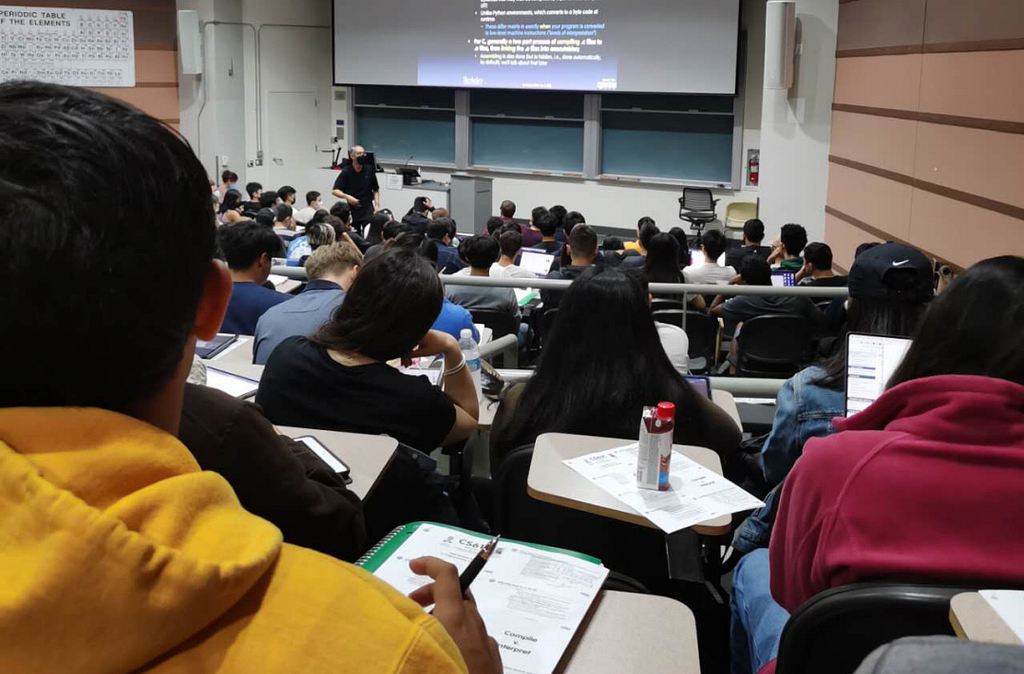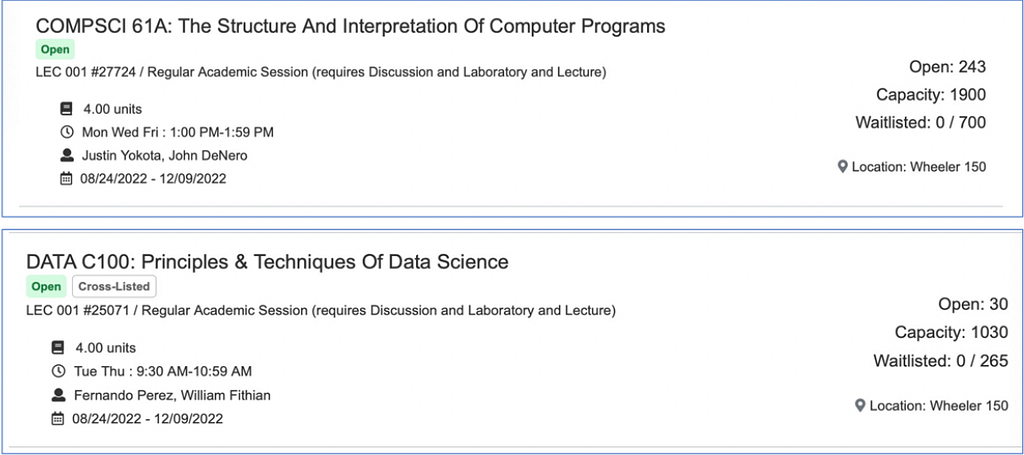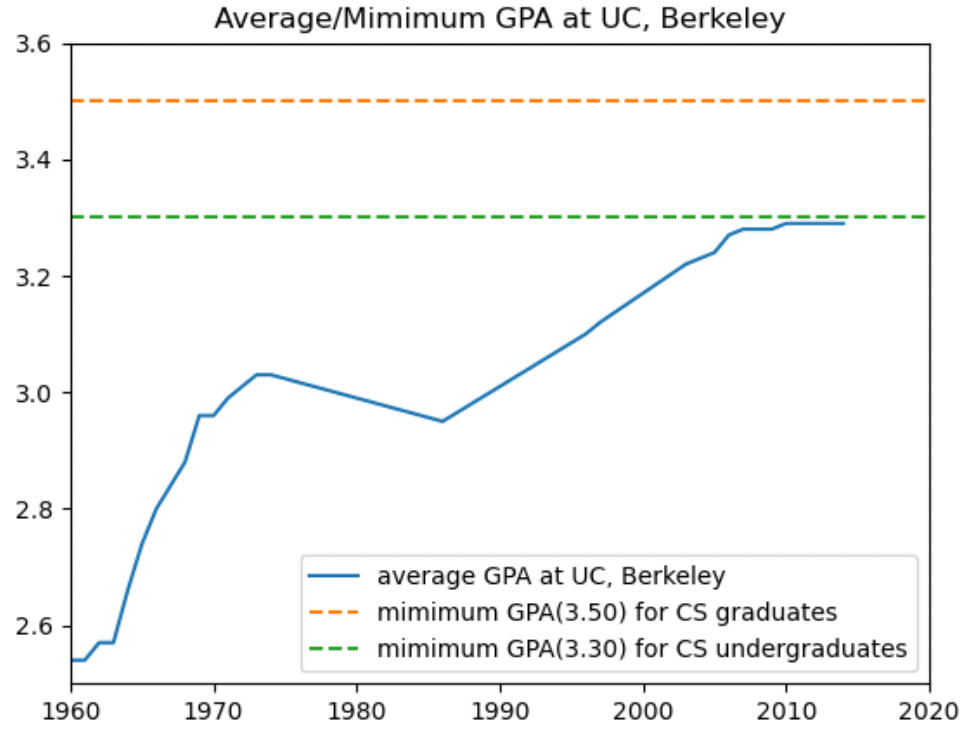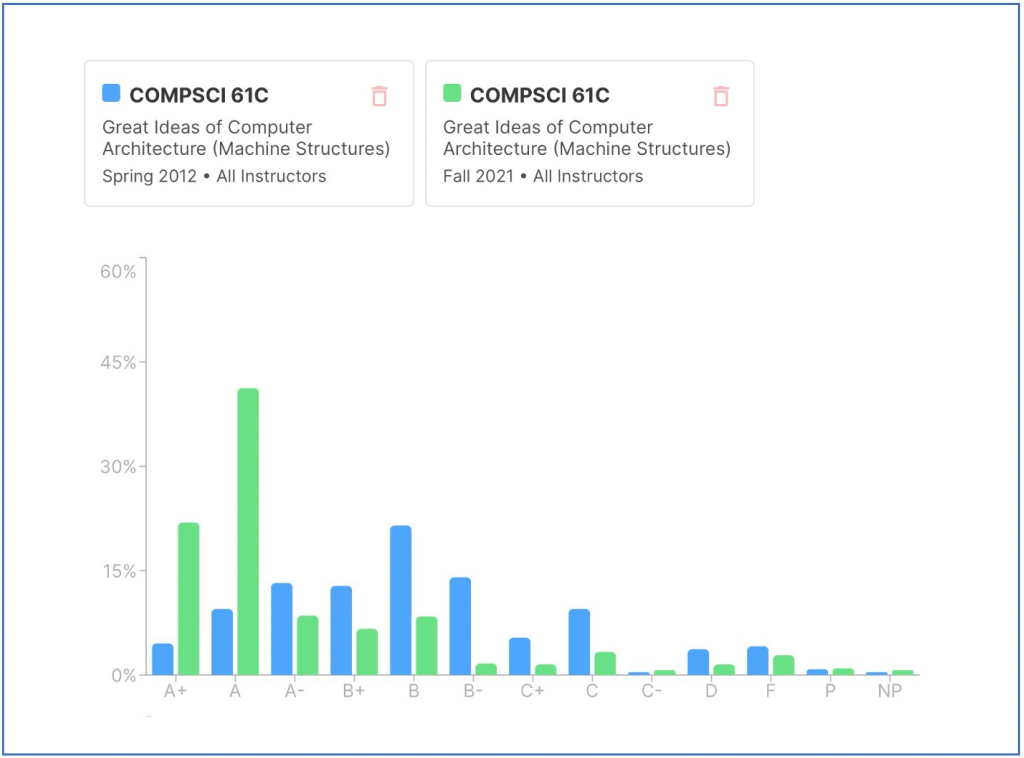By Zhaoyang He, MEng ’23 (EECS)
This op-ed is part of a series from E295: Communications for Engineering Leaders. In this course, Master of Engineering students were challenged to communicate a topic they found interesting to a broad audience of technical and non-technical readers. As an opinion piece, the views shared here are neither an expression of nor endorsed by UC Berkeley or the Fung Institute. On my first day at Berkeley, I was shocked by the number of classmates in DATA100, Principles and Techniques of Data Science: nearly 1,100! However, stepping into Wheeler 150, I noticed there were only 200 students in this classroom, and where were the others? Later, I learned that DATA100 provided online videos, and students could study through Zoom. “Classrooms are too crowded, and it’s relaxing to learn at home,” explained Hao, one of my classmates who preferred to study online.




- Chegg. n.d. Review of Chegg Searching Result. Accessed October 2, 2022. https://www.chegg.com/homework-help/questions-and-answers/implement-balancedfunction-returns-whether-m-balanced-mobile-mobile-balanced-following-co-q85464476.
- Crowley, Magdalene L. 2016. “Computer Science Bachelor of Arts.” EECS at UC Berkeley. May 26, 2016. https://eecs.berkeley.edu/academics/undergraduate/cs-ba.
- Crowley, Magdalene L. 2016. “M.Eng. Student Guide.” EECS at UC Berkeley. June 29, 2016. https://eecs.berkeley.edu/resources/grads/meng.
- DeNero, John. 2022. Review of Homework 4: Sequences, Trees. September 30, 2022. https://inst.eecs.berkeley.edu/~cs61a/fa22/hw/hw04/.
- Felton, James, and Peter T. Koper. 2004. “Nominal GPA and Real GPA: A Simple Adjustment That Compensates for Grade Inflation.” SSRN Electronic Journal. https://doi.org/10.2139/ssrn.531623.
- Kansal, Ashwani Kumar, Jyoti Gautam, Nalini Chintalapudi, Shivani Jain, and Gopi Battineni. 2021. “Google Trend Analysis and Paradigm Shift of Online Education Platforms during the COVID-19 Pandemic.” Infectious Disease Reports 13 (2): 418–28. https://doi.org/10.3390/idr13020040.
- Kao, Perrin. 2022. Block Ciphers and Modes of Operation. Slide 63. https://fa22.cs161.org.
- Karadag, Engin. 2021. “Effect of COVID-19 Pandemic on Grade Inflation in Higher Education in Turkey.” Edited by Dominique Persano Adorno. PLOS ONE 16 (8): e0256688. https://doi.org/10.1371/journal.pone.0256688.
- Hill, Phil. 2012. “Online educational delivery models: A descriptive view.” Educause review 47, no. 6: 84–86. https://er.educause.edu/articles/2012/11/online-educational-delivery-models--a-descriptive-view.
- “L01 Functional Programming | UC Berkeley CS 61A, Spring 2010.” n.d. www.youtube.com. Accessed October 16, 2022. https://www.youtube.com/watchv=4leZ1Ca4f0g&list=PLhMnuBfGeCDNgVzLPxF9o5UN KG1b-LFY9.
- Park, Byungjin, and Joonmo Cho. 2022. “How Does Grade Inflation Affect Student Evaluation of Teaching?” Assessment & Evaluation in Higher Education, September, 1–13. https://doi.org/10.1080/02602938.2022.2126429.
- Rojstaczer, Stuart. 2016. “National Trends in Grade Inflation, American Colleges and Universities.” March 29, 2016. https://www.gradeinflation.com/.
Op-ed: Is online education a must for university students? was originally published in Berkeley Master of Engineering on Medium, where people are continuing the conversation by highlighting and responding to this story.




